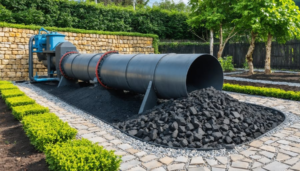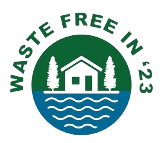Biochar Water Filtration: The Natural Solution Alberta Farmers Are Using to Purify Farm Water

Canadian organic farmers, especially in Alberta, are finding an innovative and eco-friendly way to improve their farm water quality—biochar water filtration. This method uses locally made biochar (charcoal-like material made from plant waste) to filter water before it’s used for crops. It removes harmful chemicals like pesticide residues, extra nutrients, and bacteria while also adding good minerals to the water. The process helps protect crops, improve soil health, and maintain organic certification.
The system is built from everyday farm materials: barrels, biochar, sand, gravel, and pipes. Water passes through layers of these materials, where the biochar acts like a sponge—soaking up harmful substances and holding onto nutrients. One of the biggest benefits is that the filtered water also improves soil moisture and nutrient delivery, which makes crops grow better, especially during drought. Some farms saw yield increases up to 30%.
The cost is much lower than other treatment systems. Many farmers report cutting their water treatment expenses by 30–60%. On average, a small-to-medium system costs $3,500 to $7,000 to set up. But the return on investment is quick—often within two years. For example, Mountain View Organic Farm saved $2,800 per year and earned more from better crop yields. Even better, the used biochar can be added to soil as a fertilizer.
Beyond the farm, this system helps the planet. Every kilogram of biochar used in filtration traps about 2.7 kg of CO₂, helping reduce climate change. Alberta farmers using these systems may even qualify for carbon credits, adding income while helping the environment.
From an environmental view, biochar filtration reduces the need for chemicals in water treatment, avoids polluting nearby rivers, and uses waste wood that might otherwise be burned or dumped. It turns a waste problem into a soil and water solution.
In short, biochar water filtration is cheap, low-maintenance, and effective. It fits perfectly into Waste Free ’23’s mission to recycle organic waste, reduce pollution, and support community-scale solutions. It’s a practical, affordable tool that boosts both farm profits and environmental health.
For more on how biochar helps farmers and the planet, check out:
👉 WasteFree23.org Biochar Reference Section
👉 Training for Farmers: How to Make and Use Biochar (Coming Soon)
Got questions?

